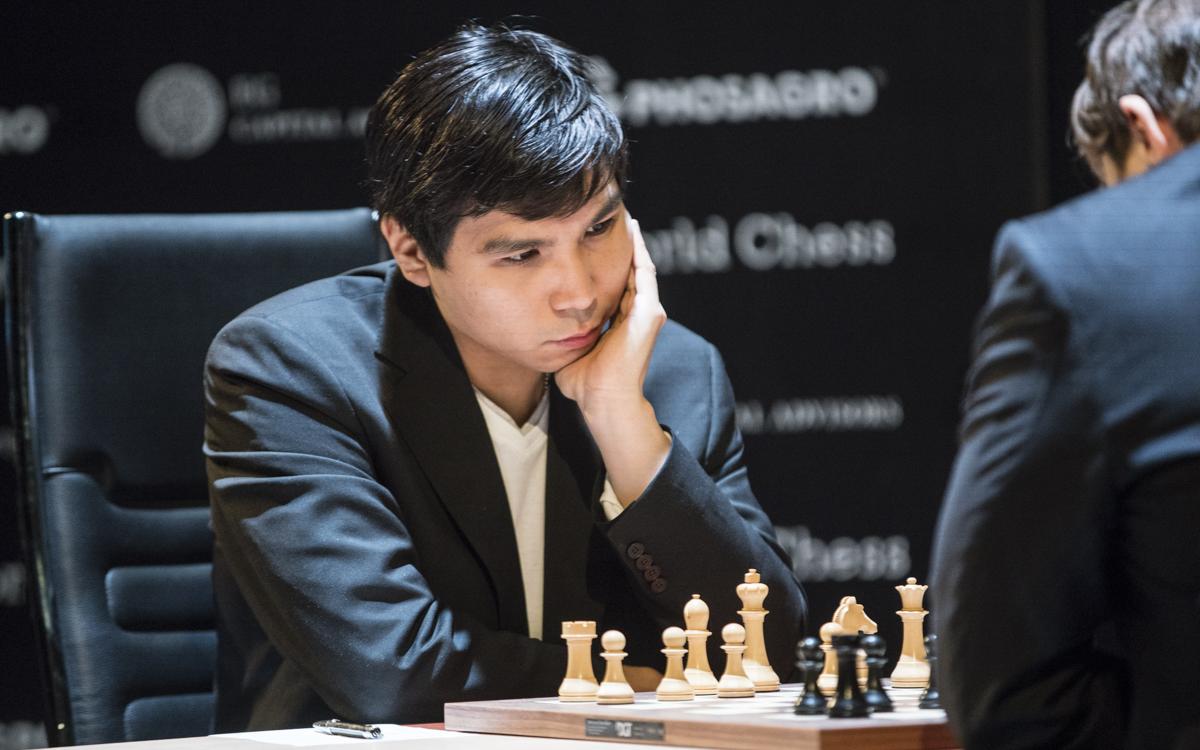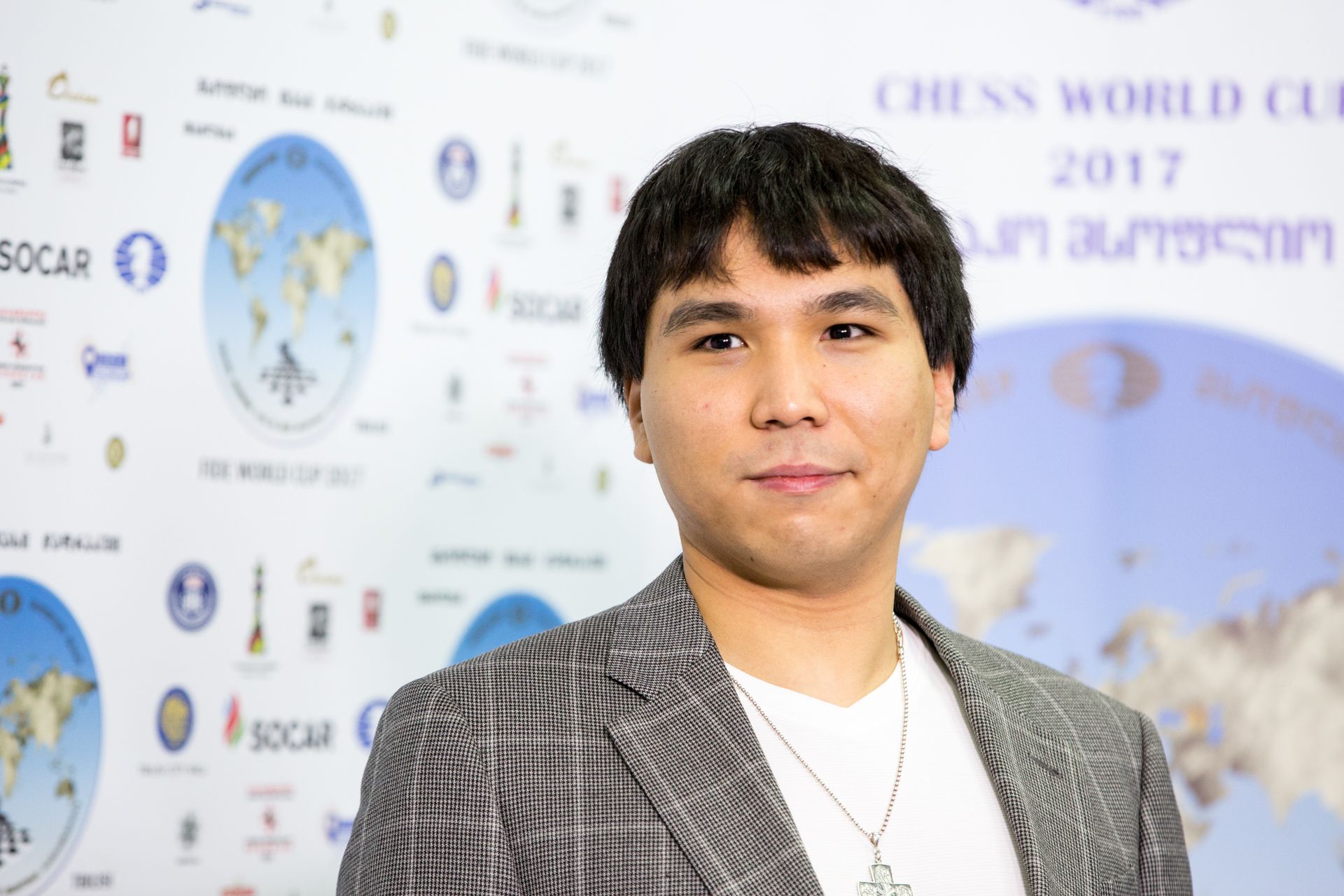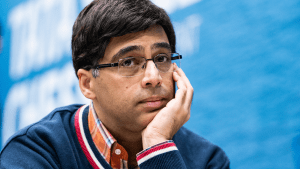
Wesley So Interview: 'Chess Was A Way Out'
Wesley So tells David Cox about his remarkable journey from learning the game in an impoverished neighborhood in the Philippines to reaching the world's top 10.
In many ways, Wesley So’s life story reads a bit like the script of a Hollywood movie.
After learning chess on the streets of Cavite, a province just outside of Manila, the talented So become a grandmaster at just 14, before entering a turbulent teenage period when he separated from his biological family and lived on his own, squatting in a small apartment in the capital.
After finding his way to the United States on a chess scholarship, So was on the verge of ditching his ambitions to be a full-time professional player before being persuaded to give his dream a go by the American couple Lotis Key and Bambi Kabigting, who later adopted him.
In 2017, So became world number-two, and achieved a FIDE rating of 2822, making him the fifth-highest-rated player in history. After watching his compatriot Fabiano Caruana challenge Magnus Carlsen for the world title last year, So will be determined to secure his own shot at world championship glory in the coming years.
The interview was conducted via Skype and text may have been edited for clarity or length.
Chess.com: How did you learn the game growing up?
Wesley So: I learned chess when I was seven or eight. A lot of people played on every corner of the neighborhood I lived in. You see, chess is very popular in the Philippines, because in third-world countries, chess is the poor man’s game. Rich people play tennis, polo, and golf, while poor people play chess because you don’t need anything—no uniform, no field or courts.
Children don’t need money to play chess. People make the pieces out of bottle caps, or whatever materials they have. So every week I would cut out newspaper clippings about famous grandmaster games, study them, and then I’d go from street to street with a makeshift board, challenging anyone who knew how to play.
People get very creative. While a chess book typically costs around 1500 pesos, which is a full two-day salary for many Filipinos, it’s not uncommon for one person to buy the book, Xerox every page, and then sell the photocopied versions for a few pesos a copy.
When did people start to realize you were a major talent?
I won the under-10 title in the Philippines back in 2003 and earned the right to represent my country in the World Youth U10s in Greece that year, which was my first international tournament. Around 2007-2008, I became the number-one player in the Philippines when I was 14, soon after I became a grandmaster. By the time I was 16, I was in the world’s top 100.

Tell us about the challenges you faced as a chess prodigy growing up in the Philippines. In previous interviews you’ve mentioned an "endless cycle of corruption" within the sporting federations.
There’s a basic chess structure in the Philippines, but there’s very little support systems for developing good players into global stars. While the Chinese or Indian schools will identify talented boys at the age of four, and start giving them all kinds of assistance, there’s no long-term strategy for development in the Philippines.
The major problem is corruption. It’s hard for athletes to get financial assistance to compete abroad, especially if they don’t have connections. For example, we would send teams to the Asian Games and there would be more officials on the plane than athletes. But corruption is embedded deep within our culture. It perhaps comes from the years of colonization and domination from foreign powers. You have to know people to get anywhere. People say, you can only get rich within the Philippines if you’re a politician. For normal people, it’s impossible.
How did you become estranged from your biological family?
It’s difficult for me to speak about it. We kind of grew apart. Nobody realized I was going to become a top chess player. No one else in my family played the game, so they didn’t really understand it at all. My mother wanted me to become an accountant, while I wanted to leave school and turn professional. So they left me in the Philippines when I’d just turned 16, and emigrated to Canada. I drifted for a while, squatting in an apartment in Manila owned by the chess federation, but it often had no electricity. I got some monthly support, and I’d play and win tournaments here and there, but I was just drifting for several years, until I got the opportunity to move to the U.S. in 2012.
How did you end up in the U.S.?
I got the offer from Webster University to come on a scholarship, and help it build a chess program by winning tournaments. So my plan was to take it, get a degree and then maybe get a job in the U.S. working in a banking or something. But the main thing was to get out of the Philippines.
I guess you could say chess was a way out for me. I was studying there for two-and-a-half years before I decided to become a full-time professional.
What gave you the confidence to go pro?
Back in 2013, I was making pocket money while studying, traveling around the country playing weekenders and winning $1,000 here and there. I was staying with this Filipino guy during the tournament, and he put on a dinner party where I met Lotis and her family. They didn’t know anything about chess, but we became friends, and I spent Christmas with them. At the time, I was in the top 30 and I wanted to play full-time, but I didn’t think it was good enough.
But Lotis encouraged me to try, and suggested I give it two years, see how it went and then if it didn’t work out, go back and finish school. They gave me a place to stay, which was only supposed to be a short-term thing, six months to help me get my paperwork and everything sorted out. They’d always supported a lot of foster children through their local church. But then within 10 months of that Christmas, I was living with them full-time and they adopted me.
Having that support has made a huge difference to my chess. Literally all players in the top 20 have family behind them. Magnus’ father travels with him wherever he goes. The same with Fabiano. It’s not just about the playing, but there are thousands of details on transport, logistics, contracts, visas. This year I will be competing in more than 20 countries. Richard Rapport said he can’t remember the last time he had four hours just to sit and think.
In 2014, you switched federations from the Philippines to the U.S. Do you think you could have still reached the top if you’d remained based in the Philippines?
I was already in the top 10 before I switched federations in 2014, but I don’t think I would be able to make a good living if I hadn’t switched. For example, I won the Philippines’ first-ever gold at the Summer Universiade in 2013, which came with a cash reward back home. But at the time, there were two competing sports federations in the Philippines, and they both began fighting over who should get the glory. As a result, they never officially acknowledged my achievement, so I was denied the prize. As I was only 19, I wasn’t powerful or famous; there was nothing I could do.
But this was a blessing in disguise as it convinced me to switch to the U.S. and I immediately had organizations stepping forward to help me financially. I really think I was born at the right time, because my career came in conjunction with the Sinquefields, who began putting more and more money into U.S .chess around the time that I switched. They’ve made it so that Europeans want to come to the U.S. to play, because they offer the best prizes on the planet. Ten years ago, everyone had to travel to Europe to play the big events.
You had such a good season in 2017, becoming world number-two and then 2018 wasn’t such a good year for you. What do you feel your biggest weaknesses are right now?
2018 was a very bad year for me. I wasn’t really 100 percent focused and didn’t really have any major wins. But with chess, there are ups and downs, and things like physical condition and personal life can really affect your play. But I think I can climb back up. I’m playing a lot of tournaments this year, around 16 or 17, so I have a lot of opportunities to bounce back.
But lack of decisiveness or directness is one of my weaknesses. For example, if I have a good or winning position, instead of delivering the knockout blow, I try to take the safer but longer road, which sometimes allows my opponent second chances. Some people say this is extremely cultural. In Filipino culture, people never get directly to the point, whether that’s in conversation, in action or in business. They will beat around the bush to get to what they want to say.
There is a sort of impoliteness attached to going directly to the point. Perhaps that sometimes comes through in my chess.
You were a little disappointed with your performance at the 2018 Candidates' tournament, where you finished seventh. What went wrong for you there?
The start of the tournament didn’t go well for me for a variety of reasons. I was very nervous when we arrived in Berlin, and I was rattled by all the expectations because people kept telling me, "This is a big chance for you, don’t mess it up." And of course, that’s exactly what I did. But in addition to that, I’d been working with a coach the previous year. It didn’t go well, partly because I’d never really had a coach before, and as a top player you’re already so set in your own style, it’s not really necessary.
So we parted ways. But the night before the first game, I found out through an email that this guy had kept notes on all our interactions and was planning to publish an exposé book, revealing lots of information about my life. I’m a very private person so this was extremely unsettling, and it felt like a real breach of trust. So I was really unhappy about that the night before the first game, along with struggling with all the expectations. It’s why I started so badly.

What frame of mind do you have to be in to play your best chess?
I play best when I’m very happy. The times when I’m not happy, you can see it in my play. I like to get along with everybody. I don’t feel the deep-seated anger or animosities that drive some players to be better.
Some players are very motivated by antagonism. I don’t have that. I feel bad sometimes when I beat people. I don’t get that same thrill from victory which Bobby Fischer did, when he said he wanted to crush people. Again, this is perhaps cultural, but I’m probably not as competitive as some of the other top players.
Do you feel that some players even create animosity to try and motivate themselves more?
It’s a psychological game. People attack other people in this business, especially when they know that they are sensitive. For example, there’s a player who cannot abide any swearing, and there have been other players who’ve gone up to him and whispered curses in his ear as he’s walking to the board, just to upset and rattle him.
Let’s talk internet chess. How do you feel it’s changed the game, and what do you get the most satisfaction out of, over-the-board events or the new major online competitions like the PRO Chess League and the Speed Chess Championship?
I definitely like over-the-board chess because it’s the ultimate. You have the feelings of another player right in front of you, the emotions and facial expressions are right there. But online chess is growing a lot, even though the major problem for me is still players cheating here and there with computers. Chess.com has done a fantastic job and spent a lot of money on advanced anti-cheating measures, but it still doesn’t catch everybody.
I used to play blitz on other websites as well but I got cheated so many times. People sometimes ask, "Why does that bother you? Why do you get so upset if somebody cheats you, it’s just online anyway?" But people don’t understand the mentality of a top player. When you play, you’re very serious, even online. So when you find out you’ve been cheated, it’s infuriating. When it’s what you do for a living, you can’t just knock it off. It’s very different, both emotionally and mentally.
You’re competing for the Saint Louis Arch Bishops in the PRO Chess League, along with Fabiano. How do you like your chances ahead of the championship weekend?
I like our chances right now. But you can’t underestimate players here. We played the Pittsburgh Pawngrabbers in the round-robin, who are supposedly not that good a team, but they almost beat us because I messed up in the first game. And the New York Marshalls have done very well even though they have quite low-rated players. But hopefully we will play well and be able to take the title.
Finally, you’ve mentioned your dislike of the prevalence of chess engines in the modern game. What do you think is the future of chess?
My favorite form of chess is actually chess960. Because there’s not much theory, not much preparation, it’s very original. With the traditional format, the engines are just getting super strong, and it feels like you have to memorize the first 20-25 moves just to get a game.
Bobby Fischer once said that the problem with chess is that you get the same exact starting position over and over. These days, there’s 10 million games in the database already, so it’s very hard to create original play, while chess960 is really your brain against mine. After the first or second move, you’re already thinking.
They had the first tournament in St. Louis last year. They show you the position 30 minutes beforehand, and you can’t run any engine before the games. You can work on it with other players but you’re not allowed your laptop or any electronics. It’s just really fun.
A game with Wesley So:
David Cox: With a Chess.com blitz rating of 1764, I fall firmly into the keen amateur playing category, but just how big is the gulf between players like me and super grandmasters? How long can I last before getting inevitably pulverized?
To find out, I’m challenging each player to a post-interview game of blitz. Wesley was first up, and alas, my task was made even stiffer by landing the black pieces. (Annotations by the author.)



